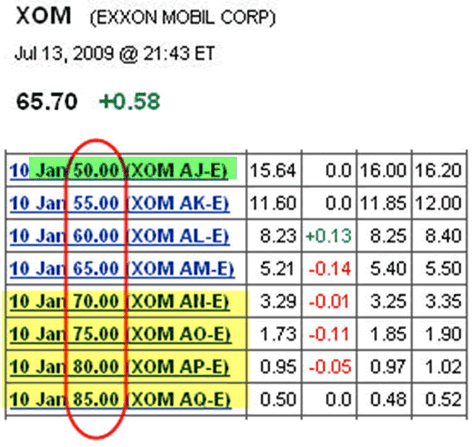Contents:


Other senior positions, however, may involve analysis of the bigger picture and predictive skills that can guide a company in determining the viability of new ventures or acquisitions. Even though managerial accounting is not required, it is a very important component of successful business planning. Financial accounting must follow generally accepted accounting principles , while managerial accounting does not need to follow GAAP. Financial accounting mostly ends with financial statements preparation and distributed externally and internally.
For example, managerial accounting helps business leaders determine how much to charge for a new product, choose the best way to allocate resources and analyze future product lines. Using managerial accounting for essay writing, business leaders can make operational decisions relatively quickly. Managerial accounting, also known as management accounting is a type of accounting that focuses on managing the internal needs of a business. But, once you review your financial statements over the last six months, you see that revenue is down overall.
But pop the hood, so to speak, and you’ll quickly see how the two types of accounting are different — and why both are extremely important for your business. Management accounting and financial accounting both serve important roles within a business. The managerial vs financial differences are significant — but equal in importance for any business. The two introductory accounting courses found in most business programs are financial accounting and management accounting.
Definition of Financial Accounting
Anyone working as a financial accountant must be familiar with relevant compliance guidelines and routine accounting tasks, such as creating invoices and monitoring accounts receivable balances. The information created through financial accounting is entirely historical; financial statements contain data for a defined period of time. Managerial accounting looks at past performance and creates business forecasts.
- The sum of these rules is referred to as generally accepted accounting principles .
- Financial accounting has some internal uses as well, but it is much more concerned with informing those outside of a company.
- Looked at this way, it is evident that you need the financial accounting of what happened yesterday to make good decisions for tomorrow.
- These financial statements are available for all interested in seeing them as public companies must file them with the Securities and Exchange Commission .
Financial accountants must prepare financial statements at the end of their companies’ fiscal year, though most organizations do so monthly to keep track of their ongoing business performance. The results they compile are for the business as a whole, not individual departments or product lines. Managerial accounting focuses on evaluating the internal needs of businesses and solving problems that impact revenue streams, financial health and long-term profitability. According to the Corporate Finance Institute, the goal of managerial accountants is to collect information that can be used in strategic planning, benchmarking and market forecasts.
Explore a Fulfilling Career in Financial or Managerial Accounting
If you want to know whether an asset (e.g., an assembly machine) is productive , you make use of managerial accounting to analyze the situation. Financial accounting takes the facts and figures that have already occurred and reports them in an easy-to-understand format. When you read a financial accounting report, you’re seeing what happened yesterday, last week, or last year . Managerial accounting focuses on business potential and performance so it mainly deals with the future and estimates of numbers. It focuses on problem-solving, and building strategies to make the company more profitable and efficient over the long term.
- The objective of the financial accounting department is to provide investors, and governing bodies, with a historically accurate report of a company’s financial condition.
- Professionals interested in building a career in financial accounting or managerial accounting should consider an advanced degree in accounting to meet the ever-changing demands of the field.
- Managers here prepare reports according to imposed standards and policies like GAAP in the assurance of accuracy and validity of presented data reports.
- The target audience for financial accounting statements is external stakeholders, such as creditors, investors, and tax authorities.
- To pursue a career in business leadership, it is recommended to take managerial accounting after financial accounting.
- For example, managerial accounting helps business leaders determine how much to charge for a new product, choose the best way to allocate resources and analyze future product lines.
It can include tables, charts, graphs, etc. for a better presentation. Financial accounting, on the other hand, must conform to set reporting periods. Because of the precision necessary to maintain financial accounts for investing and taxation purposes, this type of accounting never uses estimates. Because managerial accounting deals with the parts rather than the whole, it is much more adept at identifying financial problems and how to fix them.
Problem Solving vs. Profitability
Financial accounting must meet certain standards in order to be considered accurate and reliable. Managerial accountants who want to advance their career may also consider earning a certified management accountant credential, while licensed CPAs can pursue additional certifications. A financial accountant’s core duties revolve around preparing and reporting financial statements and ensuring they’re in compliance with applicable laws and industry standards, such as GAAP. They provide financial governance through data collection and analysis, transaction reconciliation and record auditing.

Although the two types of accounting are very different from each other, they work together to create a “strategy” or game plan that fosters this success. Companies who have been around a while will use historical data for budgeting purposes, while new companies need to prepare budgets and business plans based on what they hope to happen. As mentioned earlier, most smaller businesses will have only a one or a few people in their accounting department who perform the tasks of both financial accounting and managerial accounting . But larger companies will have separate departments that handle these tasks. Common non-profits include charities, social service organizations, churches, and advocacy groups.
These careers include senior accountant, financial analyst, company controller, information and technology accountant, and chief financial officer. MAcc candidates will gain advanced skills that will enable them to enter the field and assume a higher level of responsibility and potentially a higher salary. Such candidates are better equipped to choose a position in line with their interests, whether in banking, the tech sector, the government, or another area. MAcc candidates can become well versed in both ways of interpreting financial pictures.
Financial accounting reports on the profitability of a business, whereas managerial accounting reports on specifically what is causing problems and how to fix them. Managerial accounting reports are more likely to be of use in improving operations, while financial accounting reports are used by outsiders to decide whether to invest in or lend to a business. The target audience for financial accounting statements is external stakeholders, such as creditors, investors, and tax authorities. Financial accounting is regulated by generally accepted accounting principles .

This could involve analyzing individual product lines, assessing operations and even evaluating how physical facilities are managed. The key difference between managerial accounting and financial accounting relates to the intended users of the information. Financial accountants focus on long-term financial strategies relating to organizational growth. The financial reports that these accountants produce follow established formats and abide by Financial Accounting Standards Board rules and regulations. The guidelines are outlined in the generally accepted accounting principles , which all publicly traded companies in the U.S. have adopted. While managers are responsible for the efficient operation of a business, accountants are responsible for reporting the results of that effort to the investment community.
Management Accounting Versus Financial Accounting.
Accountants help their organizations understand financial data through techniques such as ratio analysis, vertical analysis and horizontal analysis. In financial accounting, the rules are set by the Financial Accounting Standards Board or by the International Accounting Standards Board . The standards set by FASB are collectively called Generally Accepted Accounting Principles and IASB standards – International Financial Reporting Standards .
Both rely on the same source figures, requiring accurate recordkeeping of transactions, revenues, and expenses. Managerial accountants will use these figures to create internal budgets and forecasts, while financial accountants will use them to comply with all external regulations. Both types of accounting also use similar strategies to gather and analyze data, looking at changes in sales and expenses over time. Produce documents that can be used internally to maximize a business’s efficiency. For example, they track the use of company resources like equipment, labor, and raw materials over time along with sales and revenue. These internal financial documents can be used to create budgets and set sales goals.
These rules include end-to-end principles, standards and procedures for ensuring the consistency and accuracy of accounting information on financial statements. Management accounting documents are never distributed externally and are therefore not required to follow GAAP guidelines. Often, management reports will include information that is not applicable for financial statements. Managerial accountants have experience with accounting principles, financial research, and report writing but their duties vary based on the management and financial needs of the organization. Managerial accountants are often responsible for monitoring company Investments long side other managers.
In management accounting, the reporting is a lot more frequent and it can be daily, weekly, or monthly, depending on the business’ needs. Financial accountants must be able to use spreadsheets, databases, and ERP software. Accounting software like Quickbooks and Zoho are also becoming increasingly popular, and financial accountants are now required to have extensive experience in the two. The main difference between managerial and financial accounting is the user of the data. These are the main differences between managerial and financial accounting. Conforming to these rules allows lenders and investors to directly compare companies based on their financial statements.
International Accounting and Finance Masters Bayes Business … – City University
International Accounting and Finance Masters Bayes Business ….
Posted: Thu, 23 Mar 2023 19:22:57 GMT [source]
encumbrance accounting accounting has some internal uses as well, but it is much more concerned with informing those outside of a company. The final accounts or financial statements produced through financial accounting are designed to disclose the firm’s business performance and financial health. If managerial accounting is created for a company’s management, financial accounting is created for its investors, creditors, and industry regulators. These include cash flow statements, income statements and balance sheets that will be viewed by external investors and stakeholders.
The accounting for these organizations is more focused on how money is used to advance the purpose of the organization. In addition, nonprofits can apply to the IRS for non-taxable status, commonly under either IRC Section 501 or 501. Because of the significant differences between accounting for business transactions and accounting for non-profit organizations, this is an area of potential specialty for accountants. Financial accounting is one of the several accounting branches and is generally concerned with financial statements. This branch provides financial statements for a company’s external uses. These financial statements document the company’s performance and information that may interest outside parties such as investors, customers, suppliers, or creditors.

Another major https://1investing.in/ is that managerial reports are used internally, while financial reports are distributed to those outside the company, including regulators, investors, and financial institutions. Personal finances are closer to financial accounting rather than managerial accounting. This is because your personal finances often involve the preparation of financial statements to show income and expenses, and tracking your net worth. You may also need to monitor bank statements, investments, and more, requiring similar steps to preparing financial statements for a business.

Comentarios recientes